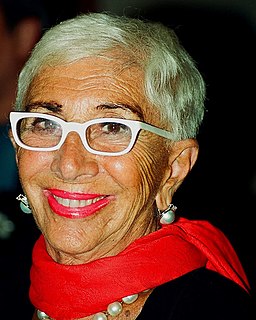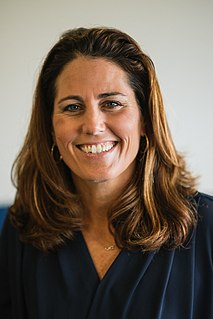A Quote by David McCullough
I can fairly be called an amateur because I do what I do, in the original sense of the word - for love, because I love it. On the other hand, I think that those of us who make our living writing history can also be called true professionals.
Related Quotes
...marriage is foremost a vocation. Two people are called together to fulfill a mission that God has given them. Marriage is a spiritual reality. That is to say, a man and a woman come together for life, not just because they experience deep love for each other, but because they believe that God loves each of them with an infinite love and has called them to each other to be living witnesses of that love. To love is to embody God's infinite love in a faithful communion with another human being.
I love art, and I love history, but it is living art and living history that I love. It is in the interest of living art and living history that I oppose so-called restoration. What history can there be in a building bedaubed with ornament, which cannot at the best be anything but a hopeless and lifeless imitation of the hope and vigor of the earlier world?
God lends us a little of His reasoning powers and that is how we think: He puts a little of His love into us and that is how we love one another. When you teach a child writing, you hold its hand while it forms the letters: that is, it forms the letters because you are forming them. We love and reason because God loves and reasons and holds our hand while we do it.
All true and living devotion presupposes the love of God and indeed it is neither more nor less than a very real love of God, though not always of the same kind; for that Love one while shining on the soul we call grace, which makes us acceptable to His Divine Majesty; when it strengthens us to do well, it is called Charity; but when it attains its fullest perfection, in which it not only leads us to do well, but to act carefully, diligently, and promptly, then it is called Devotion.
We are called upon to obey and follow our Lord the Christ, but it is not because of any fear of Him or of the consequences if we did not follow; it is the love of Christ which constraineth us, as we are told in the Epistle for the first Sunday of Lend. It is because of our love and gratitude to Him that we must follow Him, that we must strain every nerve to make ourselves like Him. That is our reason--not fear but love.
if I love something I do it, and if I don't, I don't. I think that this is the most important choice that any of us can make in life, in art, in history: to do the thing you love. If you love it, it is important. If you love it then while you are doing it, you are a true expression of yourself and your time and your story. You are authentic. If you don't love it you betray not only yourself but also your history, your culture, your position in your society.
Those who are truly enlightened, those whose souls are illuminated by love, have been able to overcome all of the inhibitions and preconceptions of their era. They have been able to sing, to laugh, and to pray out loud; they have danced and shared what Saint Paul called 'the madness of saintliness'. They have been joyful - because those who love conquer the world and have no fear of loss. True love is an act of total surrender.
And then he says, "The writer must be true to truth." And that's a killer, because the only way you can describe a human being truly is by describing his imperfections. The perfect human being is uninteresting - the Buddha who leaves the world, you know. It is the imperfections of life that are lovable. And when the writer sends a dart of the true word, it hurts. But it goes with love. This is what Mann called "erotic irony," the love for that which you are killing with your cruel, analytical word.
We're dealing with music that is being played by traditional instruments in a specifically built building called a concert hall.
But classical is not - the reference is wrong, because classical on one hand refers to one period in musical history, which is Mozart, Hayden, Beethoven, which is a fine period in musical history, but it was a while ago.On the other hand, it sort of alludes to some kind of "class," which A, is not true; B, is kind of detrimental to the whole idea. Because the point is that this music is available and it's actually relatively reasonably priced.
The reports that Media Matters have done about sexism in our society and really the mainstream media called Hillary Clinton "castrating," they called her the B word, they called her all kinds of horrible things. And I think in a sense that it raised the awareness in our country, so that we can have a national discussion about it.








































